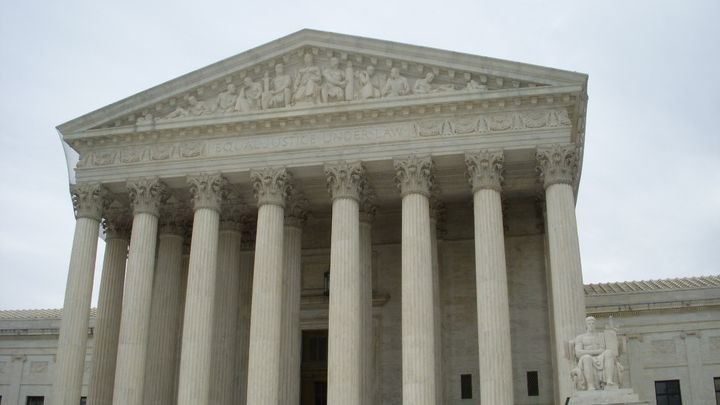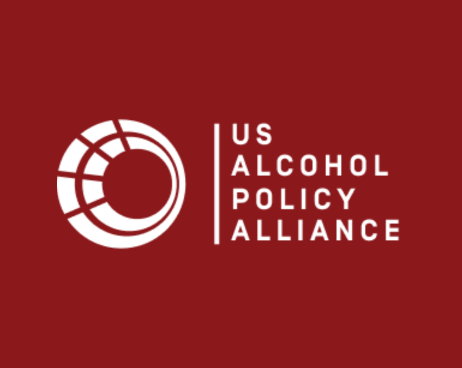US Alcohol Policy is fundraising

Protect States' Options on Alcohol
Dear Public Health Colleagues and Friends,
We need your help to protect states' safeguards on alcohol.
There is an urgent need for funds and support to engage in an effort allowing the voice of public health to be heard as attempts are made to remove states’ regulatory controls through a U.S. Supreme Court case to be heard soon.
The U.S. Alcohol Policy Alliance is working to submit a public health amicus brief to the Supreme Court for Tennessee Wine & Spirits Retailers Ass'n v. Byrd . All briefs are due on November 20. The case is taking on the 21st Amendment -- which gives the states explicit control over the sale, regulation and taxation of alcohol – with a challenge to Tennessee's two-year residency requirements for initial license. This case could have far-reaching ramifications on important public health regulations that safeguard our communities against alcohol-related harms and limit states' ability to adopt limitations on license density, e-commerce, and direct shipment of alcohol.
A theme of this year's Alcohol Policy Conference/AP18 highlighted how deregulation of alcohol is a threat not only in our state legislatures but also in our courts. This case is a prime example of how these threats take shape. It is paramount for the public health community to weigh-in on this landmark case before the Supreme Court. The last alcohol regulatory case to be heard by the Supreme Court was in 2005 and only half of the Justices who were on the court then are still there today. This fact makes it all the more prudent to use a public health amicus brief to explain to the Justices how important states' rights are in the regulation of alcohol and in protecting the health and safety of our communities.
We have secured an attorney with experience writing Supreme Court briefs and who is willing to write and submit the public health amicus brief on our behalf for a very reasonable rate. Additionally, we have public health attorneys who have graciously offered their time and talents pro bono to help the attorney write the brief.
Now we need your help!
We need to raise funds to pay the attorney and filing fees. Even though our attorney has given us a bargain rate, amicus briefs are still technical, time consuming, and costly. Furthermore, amicus briefs must disclose who and what funded them which is why we are reaching out to all our public health colleagues first and primarily.
Finally, although the case specifically deals with Tennessee's two-year residency requirement, 21 other states impose durational-residency requirements on alcohol retailers or wholesalers ranging from 30 days to 10 years. This case would impact all of them, further restricting states' ability to regulate alcohol.
A sincere thank you for joining us in helping ensure that the Supreme Court also hears the public health arguments on this critically important case. We continue to be humbled by your commitment to work tirelessly on behalf of communities across the country.
In gratitude and kindest regards,
Diane Riibe, Executive Director and the Board of Directors
U.S. Alcohol Policy Alliance

We need your help to protect states' safeguards on alcohol.
There is an urgent need for funds and support to engage in an effort allowing the voice of public health to be heard as attempts are made to remove states’ regulatory controls through a U.S. Supreme Court case to be heard soon.
The U.S. Alcohol Policy Alliance is working to submit a public health amicus brief to the Supreme Court for Tennessee Wine & Spirits Retailers Ass'n v. Byrd . All briefs are due on November 20. The case is taking on the 21st Amendment -- which gives the states explicit control over the sale, regulation and taxation of alcohol – with a challenge to Tennessee's two-year residency requirements for initial license. This case could have far-reaching ramifications on important public health regulations that safeguard our communities against alcohol-related harms and limit states' ability to adopt limitations on license density, e-commerce, and direct shipment of alcohol.
A theme of this year's Alcohol Policy Conference/AP18 highlighted how deregulation of alcohol is a threat not only in our state legislatures but also in our courts. This case is a prime example of how these threats take shape. It is paramount for the public health community to weigh-in on this landmark case before the Supreme Court. The last alcohol regulatory case to be heard by the Supreme Court was in 2005 and only half of the Justices who were on the court then are still there today. This fact makes it all the more prudent to use a public health amicus brief to explain to the Justices how important states' rights are in the regulation of alcohol and in protecting the health and safety of our communities.
We have secured an attorney with experience writing Supreme Court briefs and who is willing to write and submit the public health amicus brief on our behalf for a very reasonable rate. Additionally, we have public health attorneys who have graciously offered their time and talents pro bono to help the attorney write the brief.
Now we need your help!
We need to raise funds to pay the attorney and filing fees. Even though our attorney has given us a bargain rate, amicus briefs are still technical, time consuming, and costly. Furthermore, amicus briefs must disclose who and what funded them which is why we are reaching out to all our public health colleagues first and primarily.
Finally, although the case specifically deals with Tennessee's two-year residency requirement, 21 other states impose durational-residency requirements on alcohol retailers or wholesalers ranging from 30 days to 10 years. This case would impact all of them, further restricting states' ability to regulate alcohol.
A sincere thank you for joining us in helping ensure that the Supreme Court also hears the public health arguments on this critically important case. We continue to be humbled by your commitment to work tirelessly on behalf of communities across the country.
In gratitude and kindest regards,
Diane Riibe, Executive Director and the Board of Directors
U.S. Alcohol Policy Alliance

- B
- T
- A
19 supporters
